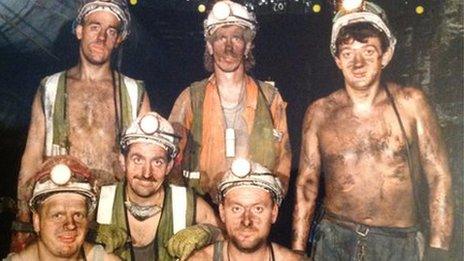Could Labour's love be lost in Mansfield after 94 years?
- Published

Mansfield, once a proud pit town, was previously seen as a traditional Labour stronghold
It has been 94 years since a party other than Labour has succeeded in returning a Member of Parliament for Mansfield. But after a strong vote for Brexit and with the Conservatives and UKIP circling, could it change hands in June?
David Spencer is in many ways a traditional Mansfield voter.
The 80-year-old retired plasterer is solidly working class and more concerned with local issues than any Westminster politicking.
"I am a Labour voter," he said. "I'm a working man, and it's the only party for me."
Fred, a former engineering apprentice who worked in the pits before moving into teaching, has also supported Labour for decades.
His long allegiance however changed when he backed UKIP in 2010. He voted for the party again two years ago, but now plans to back the Conservatives.
"Brexit has absolutely been the biggest issue here, which is why I'm going [to vote] Tory - I think they think will sort out the hardest Brexit," the 79-year-old said.
"They would vote for a goat if it was Labour here before, but it's not going to happen now."
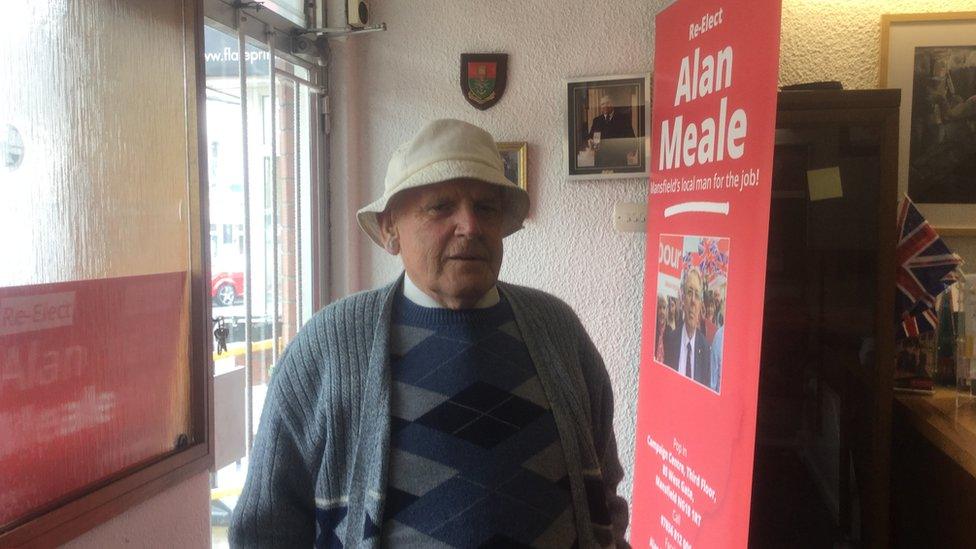
David Spencer, 80, is a lifelong Labour voter who says he has no plans of changing his mind
Fred is not the only voter to have had a change of heart in the Nottinghamshire town.
Thousands of once guaranteed Labour voters switched during the last two elections, slashing a majority of 11,365 in 2005 by more than half to 5,315 in 2015.
In another message to politicians, 70.9% of voters were clear on Brexit, making it known they wanted to leave the EU.
With such a resounding result, and with Labour struggling in the opinion polls, the seat has since been targeted by the Tories as well as UKIP.
But can they overturn nearly a century of party dominance and wrestle the seat from Labour's control for the first time since 1923?
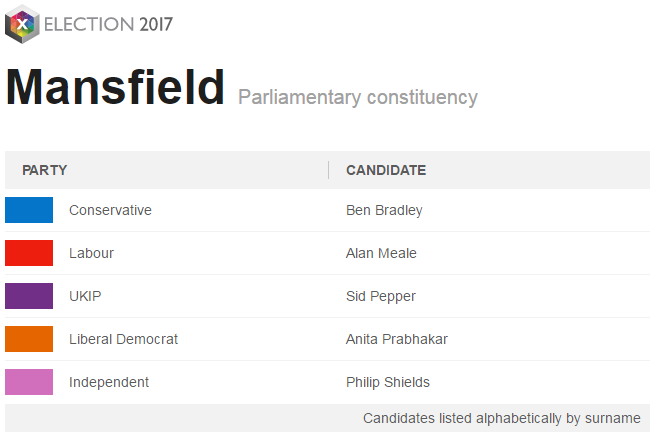
Mansfield has long been considered a safe seat, a place where callow Conservative candidates feared to tread.
Current Father of the House and Rushcliffe MP Ken Clarke failed twice in his bid to represent Mansfield, losing to Labour's Bernard Taylor and Don Concannon by nearly 20,000 in 1964 and 1966.
He recalled being "practically chased from a garden" by an anti-Tory voter who made reference to Winston Churchill's role in sending boy soldiers to the Turkish coast during World War One.
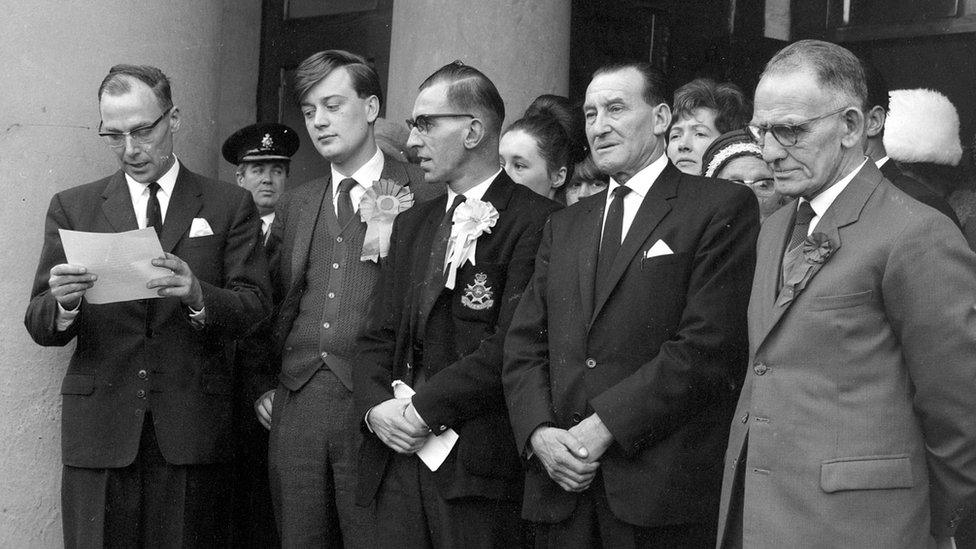
Ken Clarke (second from left) stood twice as a prospective parliamentary candidate in Mansfield but failed
"I was knocking on doors and saw [a man who] shouted at me he wouldn't speak to a man from the same party as 'the butcher of Gallipoli'," Mr Clarke said.
"I did shout over my shoulder that Churchill was a Liberal at the time, but I don't know if he heard me."
Though Mr Clarke's loss was heavy, the Tories considered keeping Labour's majority in Mansfield below 20,000 a success given its staunch hold.
"There was a Conservative presence in the town, but you did have some people who whispered that they were going to vote Tory - they didn't want the neighbours to know," said Mr Clarke.
"I was the first candidate anyone could remember who was from Nottinghamshire and wasn't an Old Etonian."
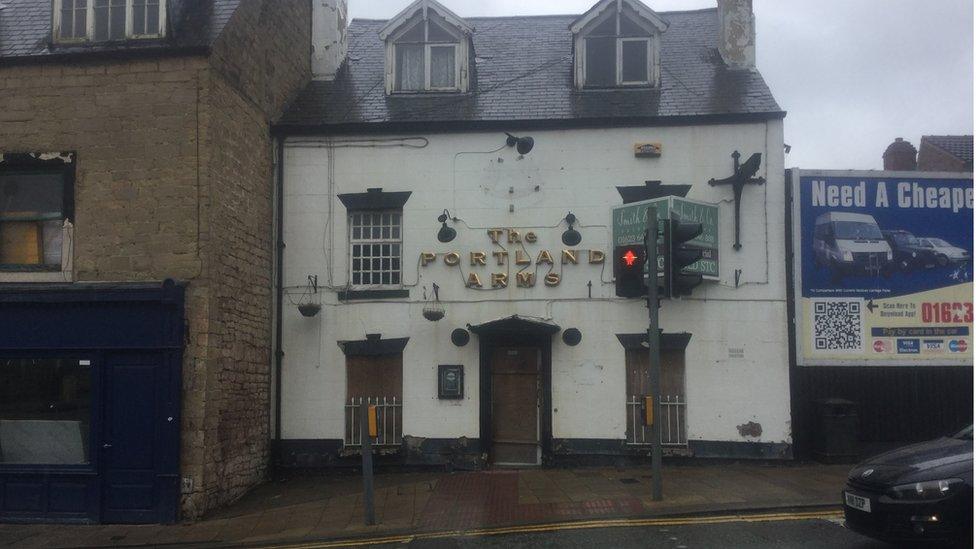
Some voters in Mansfield have questioned whether the economy has recovered from the closure of local coal mines
That Mr Clarke was unable to sway Labour voters is of no surprise to Mia James, who moved to Mansfield from The Netherlands in 1963.
Now 75, she is backing the Conservatives, something she said was barely heard of in the 1960s.
She said: "It was absolutely a Labour town when I came - people didn't talk about politics much, but most people voted the same way."
Whereas other neighbouring constituencies have moved with the political climates of the day and changed hands on occasion, Mansfield has held out.
The closest challenge came in 1987, when a weak Labour party was swatted aside nationally by Margaret Thatcher's triumphant Tories.
In Mansfield, not only was the town still reeling from the 1984 Miners' Strike, but stalwart MP Concannon, who had held the seat since 1966, stood down.

Immigration will be one of the key themes at the upcoming general election in Mansfield
His successor Sir Alan Meale - who was proposed as a candidate by the National Union of Mineworkers - squeaked home with a wafer-thin majority of 56, a drop in support he said reflected the fractious politics of the day.
"When I came here, it was as bad as it has ever been, and the country was totally and absolutely divided," he said of the seat he will defend in June.
"Families were split, and [some relatives] still won't speak to each other."
From that close shave, Labour went on to regain strength in the town, winning by margins of at least 11,000 from 1992 to 2005.
It has since dwindled, something independent candidate Philip Shields believes is part of a wider disillusionment in Mansfield.
"People are just fed up of all politicians," he said. "It's not just Labour, it's all of them, they just say one thing and do another."
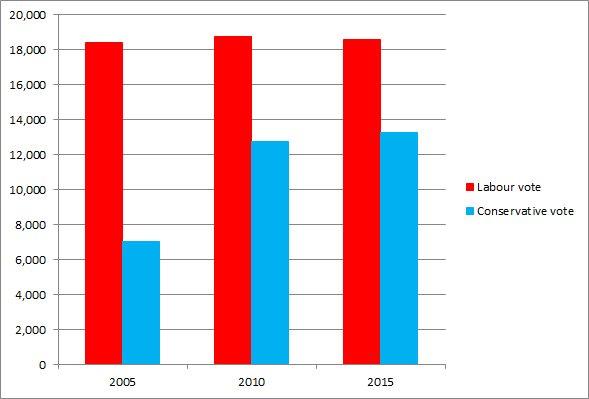
Sid Pepper, UKIP's candidate at the coming election, previously avoided voting in elections because he "didn't see the point".
The 67-year-old said his disenchantment with politics shows how Labour has become disconnected from residents.
"When you get that sort of longevity you get that sort of complacency, people think they don't need to do anything," he said.
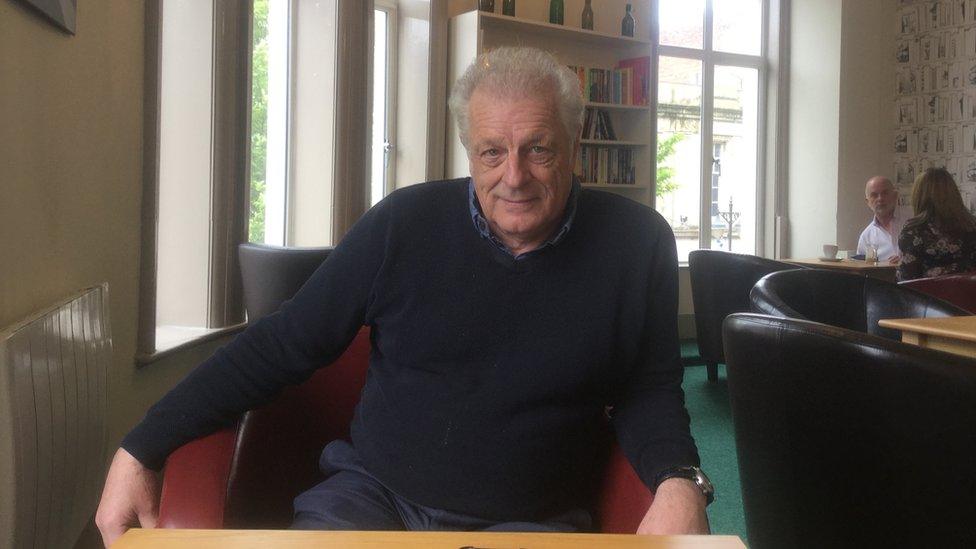
UKIP's Sid Pepper claims Mansfield voters have been neglected by Labour
Conservative candidate, 27-year-old Ben Bradley, thinks others his age have lost their tribal links to Labour.
"Maybe it has been the case before [people voting Labour], but times have changed, demographics have changed, and today the Labour party has changed," he said.
"It has been a Labour town here, I can't argue with the results over all that time. But the majority has been shrinking over the last few elections and things have moved on."
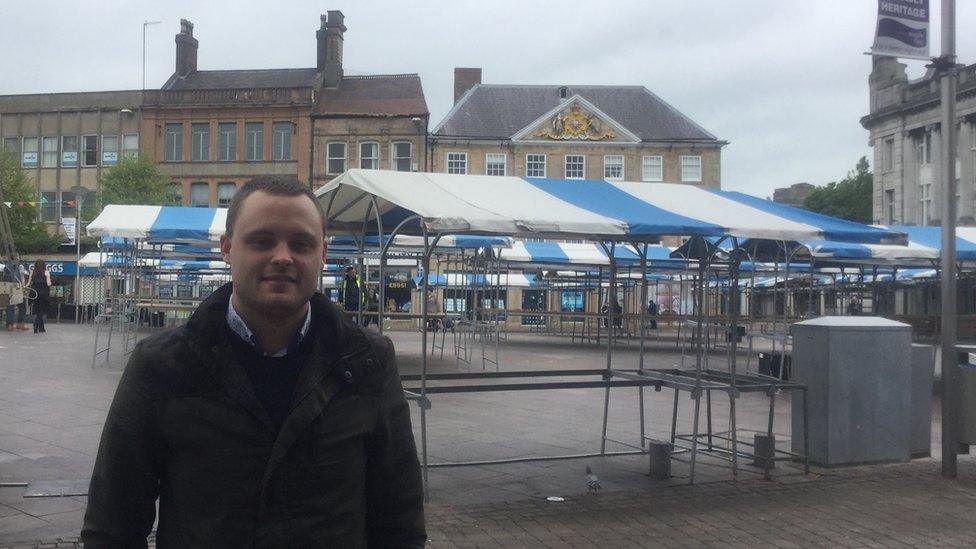
Conservative candidate Ben Bradley said changing times had seen Mansfield voters move away from Labour
It is undeniable that the political balance in Mansfield has been shaken over the years.
The question is come June, will Labour inch even closer to a century in power in the town? Will the Conservatives be boosted by pro-Brexit sentiment, or could UKIP split that vote?
Anita Prabhakar, the Liberal Democrat candidate, hopes young people will help her cause and see a liberal party return to power in the town for the first time since 1922.
"When nothing happens in things like the economy and education, that can be a reason for [people wanting] changes," she said.
"Young people especially want to bring more changes."
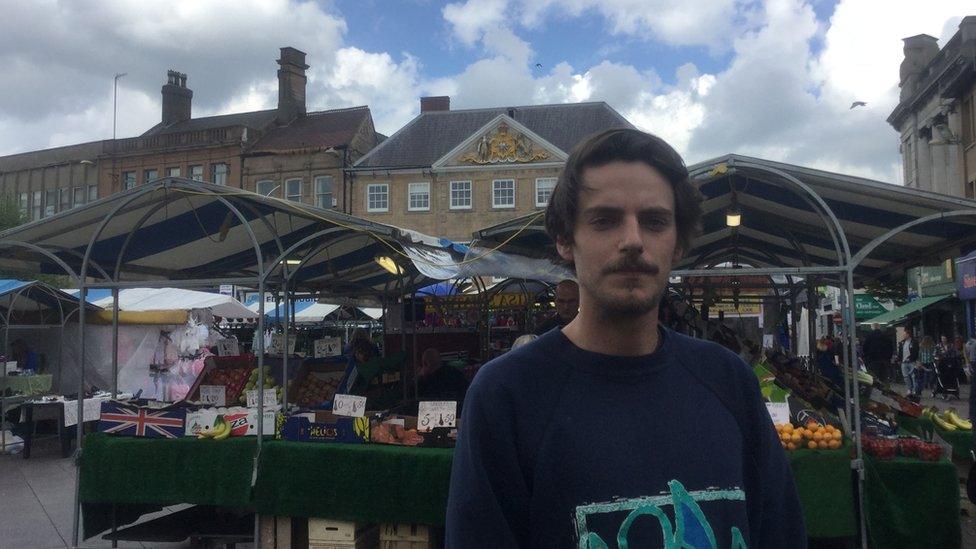
Mitchell Eaton believes Labour is "looking at the future of the country"
For once, Mitchell Eaton, 27, and Alistair Johnson, 24, intend to use their vote rather than spoil their ballots as they have in previous elections.
They intend to back the party traditionally supported by their families.
"Basically I think they're [Labour] the only ones planning on doing something positive," said Mr Eaton.
"My dad's never really taken much interest in politics and would be happy to get rid of it all, but he's still going to vote Labour. We're a working class family."
Mr Johnson even wishes the party will reach that milestone number.
"I hope Labour can get to 100 years."

Alistair Johnson says he won't be spoiling his ballot for the first time
- Published8 May 2017
- Published19 August 2015
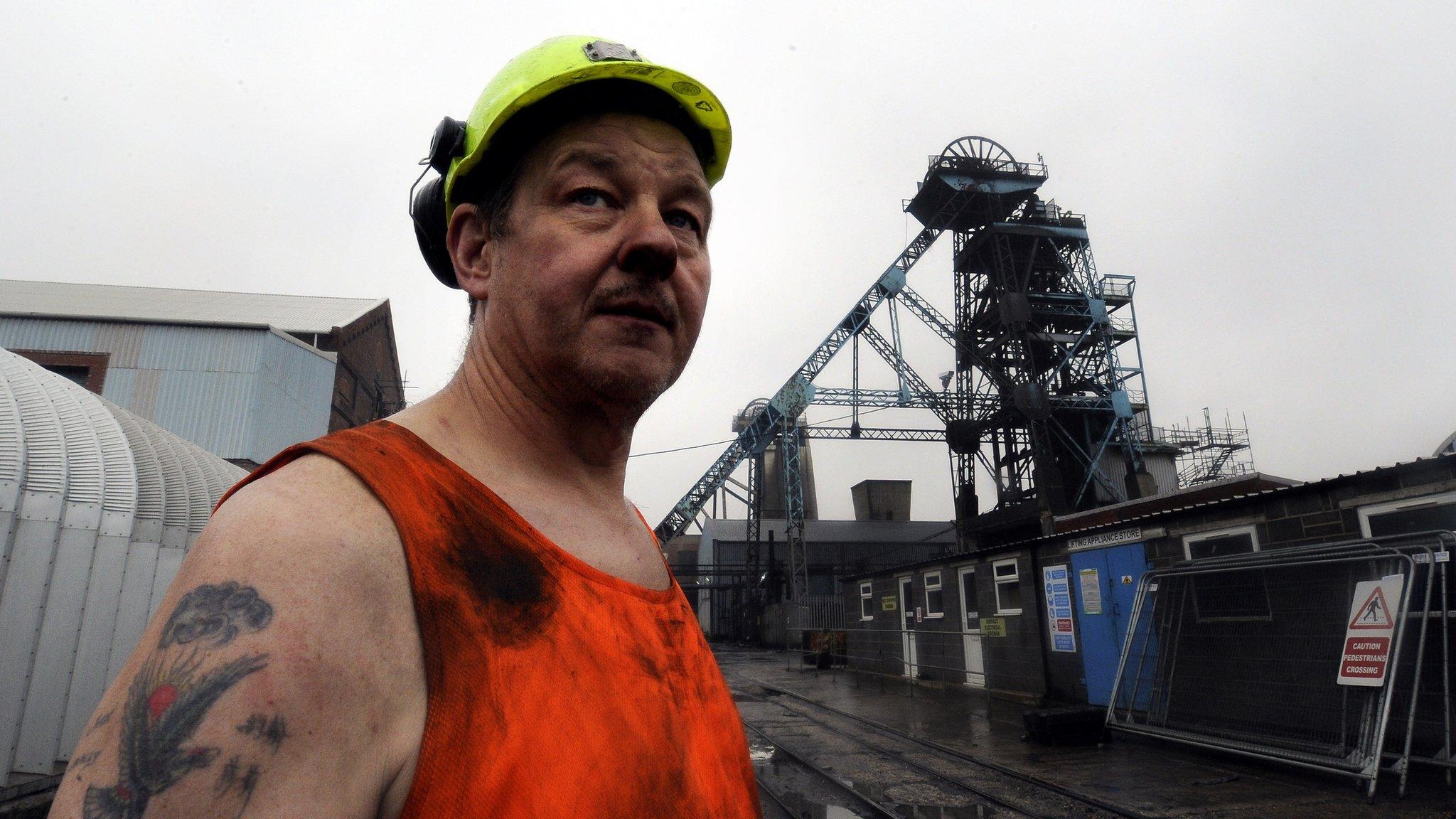
- Published10 July 2015
